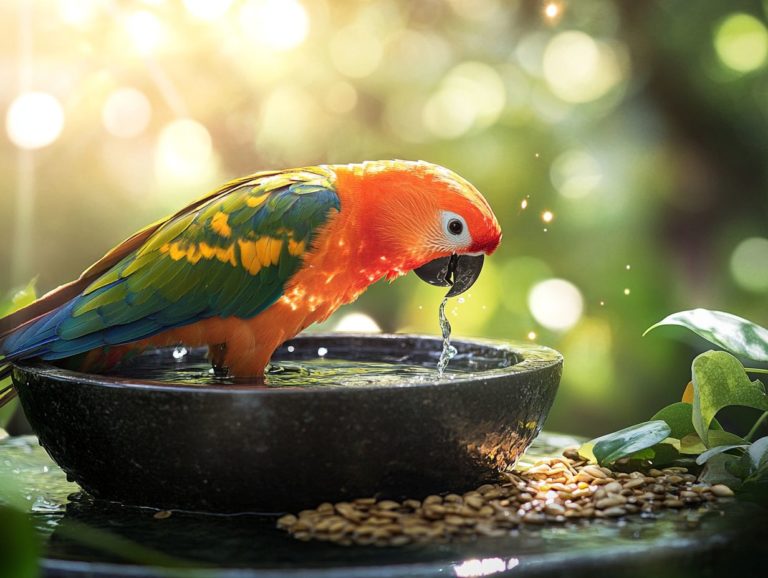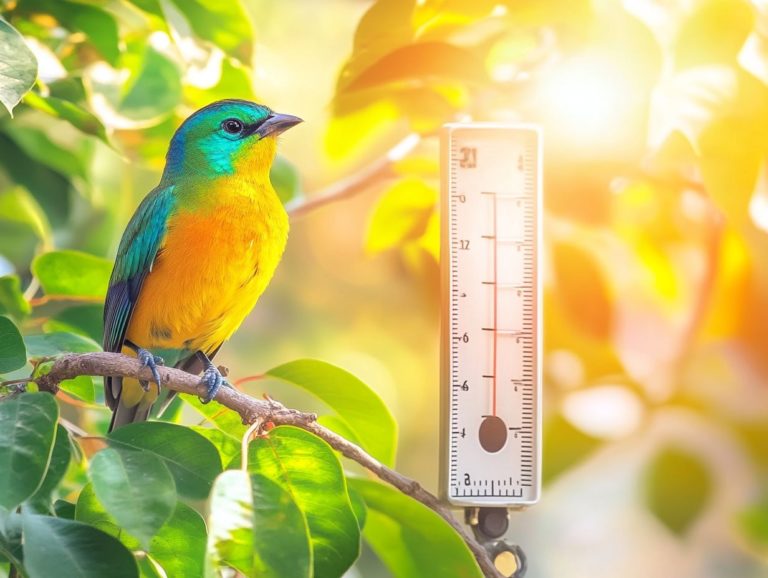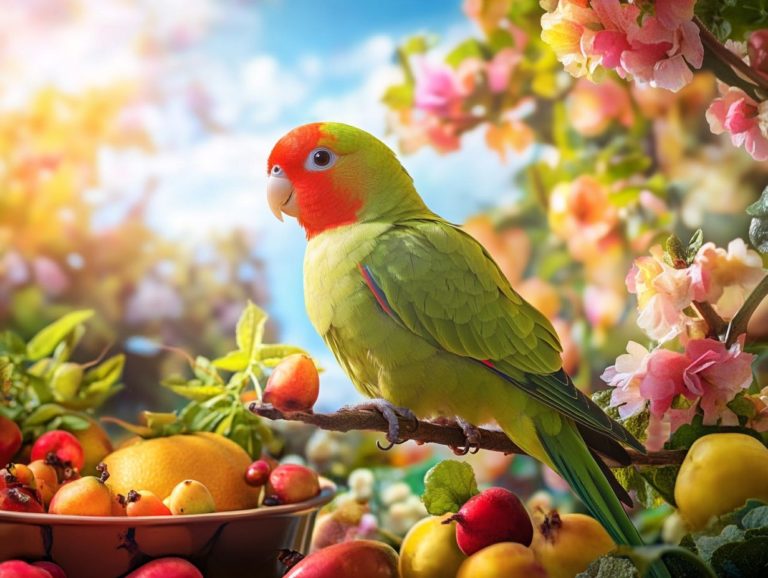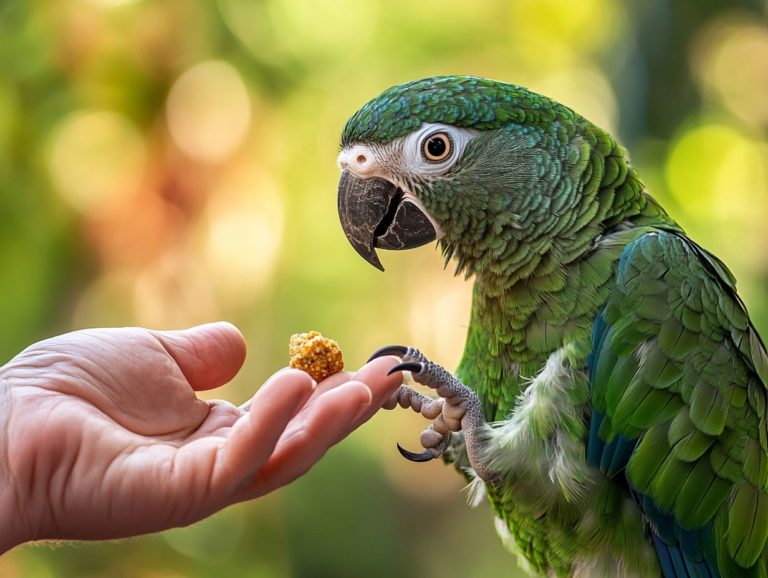Understanding the Avian Immune System
Birds, much like all living beings, depend on a strong immune system to ward off diseases and sustain their well-being. Dive into the fascinating world of avian immunity and discover its secrets!
This exploration dissects the fundamental components and key players that contribute to avian immunity. It sheds light on the various factors influencing birds’ immune responses and the common diseases they encounter.
Uncover effective strategies to enhance and manage avian health, ensuring your feathered companions not only survive but truly thrive. Understanding these mechanisms is crucial to keeping your feathered friends healthy and vibrant!
Contents
- Key Takeaways:
- The Basics of Avian Immune System
- Components of the Avian Immune System
- Factors that Affect Avian Immune System
- Common Diseases in Birds
- Boosting Avian Immunity
- Managing Avian Health
- Frequently Asked Questions
- What is the Avian Immune System?
- How does the Avian Immune System differ from other animal immune systems?
- What is the role of the bursa of Fabricius in the Avian Immune System and immune system development?
- How do birds develop immunity?
- Why is understanding the Avian Immune System important?
- How can we support the Avian Immune System and enhance immune function support?
Key Takeaways:
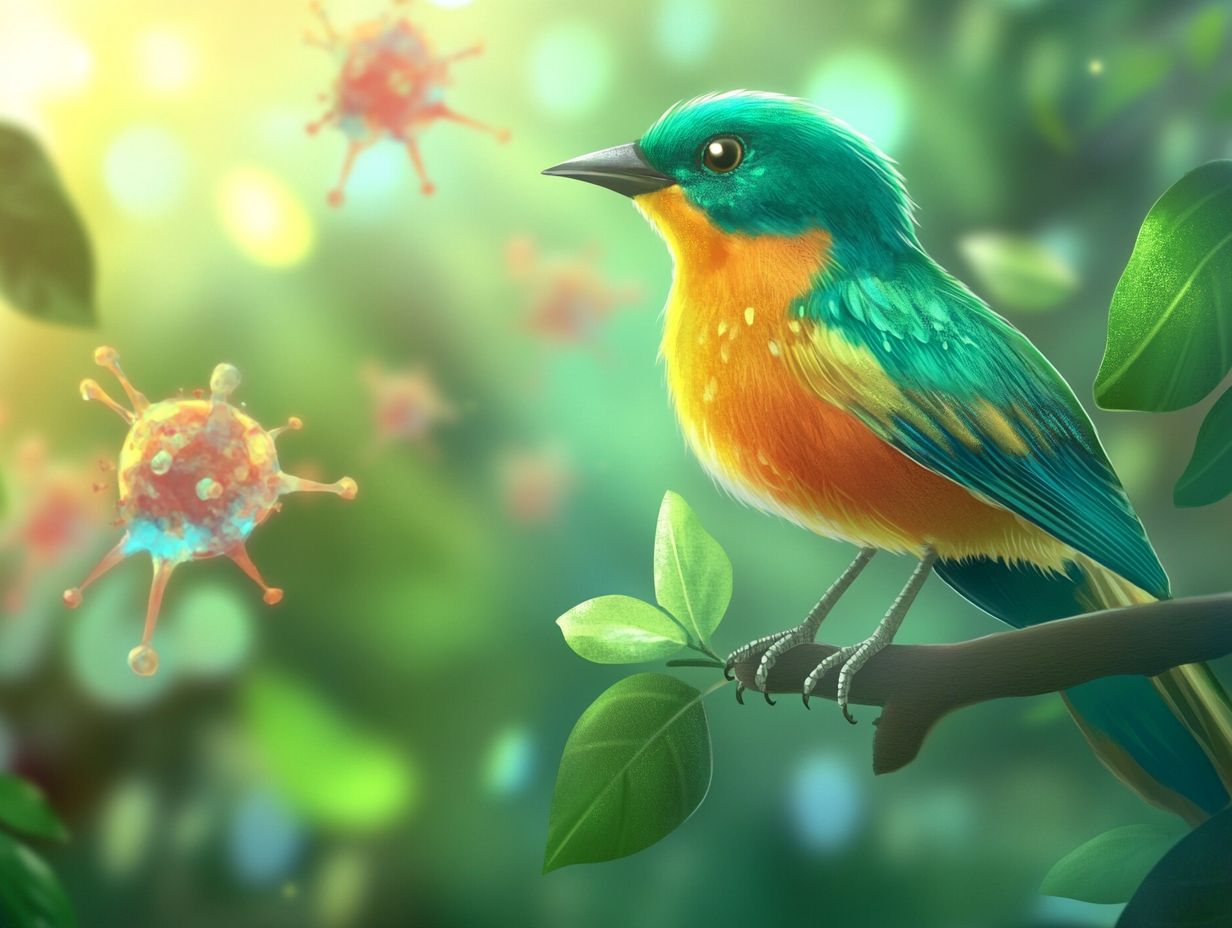
- The avian immune system is essential for protecting birds from diseases and infections.
- Environmental and genetic factors can impact the functioning of the avian immune system.
- Proper management and care can help strengthen the avian immune system and maintain overall bird health.
The Basics of Avian Immune System
The avian immune system is a complex system that plays a vital role in safeguarding birds against a range of pathogens, ultimately ensuring their survival and overall well-being.
To grasp the essentials of this system, you need to delve into both innate and adaptive immunity, which work in tandem to create a resilient immune response. Key players include T cells and B cells, which are specialized white blood cells, along with lymphoid organs that bolster the bird s ability to fend off diseases effectively.
The development of the avian immune system is shaped by genetic factors, environmental conditions, and maternal immunity. These elements significantly influence immune functions in avian species.
Overview of the Immune System in Birds
The immune system in birds, known as the avian immune system, is a remarkable and intricate mechanism. It seamlessly integrates both innate and adaptive immunity, working in harmony to ensure robust disease resistance.
This sophisticated system is essential for the survival of avian species, allowing them to detect and respond effectively to diverse pathogens. The innate immune response serves as the first line of defense, employing physical barriers and immune cells that spring into action swiftly against intruders.
In contrast, adaptive immunity develops a more targeted and enduring response, largely driven by T cells and B cells. T cells play a pivotal role in cell-mediated immunity, while B cells produce antibodies that neutralize pathogens.
Antigen-presenting cells are vital for processing and displaying antigens, activating T cells, and ensuring a coordinated immune response that adapts to ever-changing threats in their environment.
Components of the Avian Immune System
The avian immune system comprises an intricate array of specialized cells and organs, working in harmony to mount an effective immune response. This includes T cells, B cells, and essential lymphoid organs like the Bursa of Fabricius and the Harderian gland.
Key Players in Avian Immunity
Key players in avian immunity include T cells and B cells. These specialized lymphocytes have distinct yet complementary roles in both innate and adaptive immunity.
T cells primarily handle cell-mediated immunity, directly attacking infected cells or coordinating the immune response by releasing cytokines. Meanwhile, B cells take charge of humoral immunity, producing antibodies that latch onto pathogens to neutralize them.
Cytokines, secreted by various immune cells, serve as essential communication signals. They orchestrate the intricate dance of immunity by recruiting additional immune cells and modulating their activity to ensure a swift and efficient response to infections.
Factors that Affect Avian Immune System
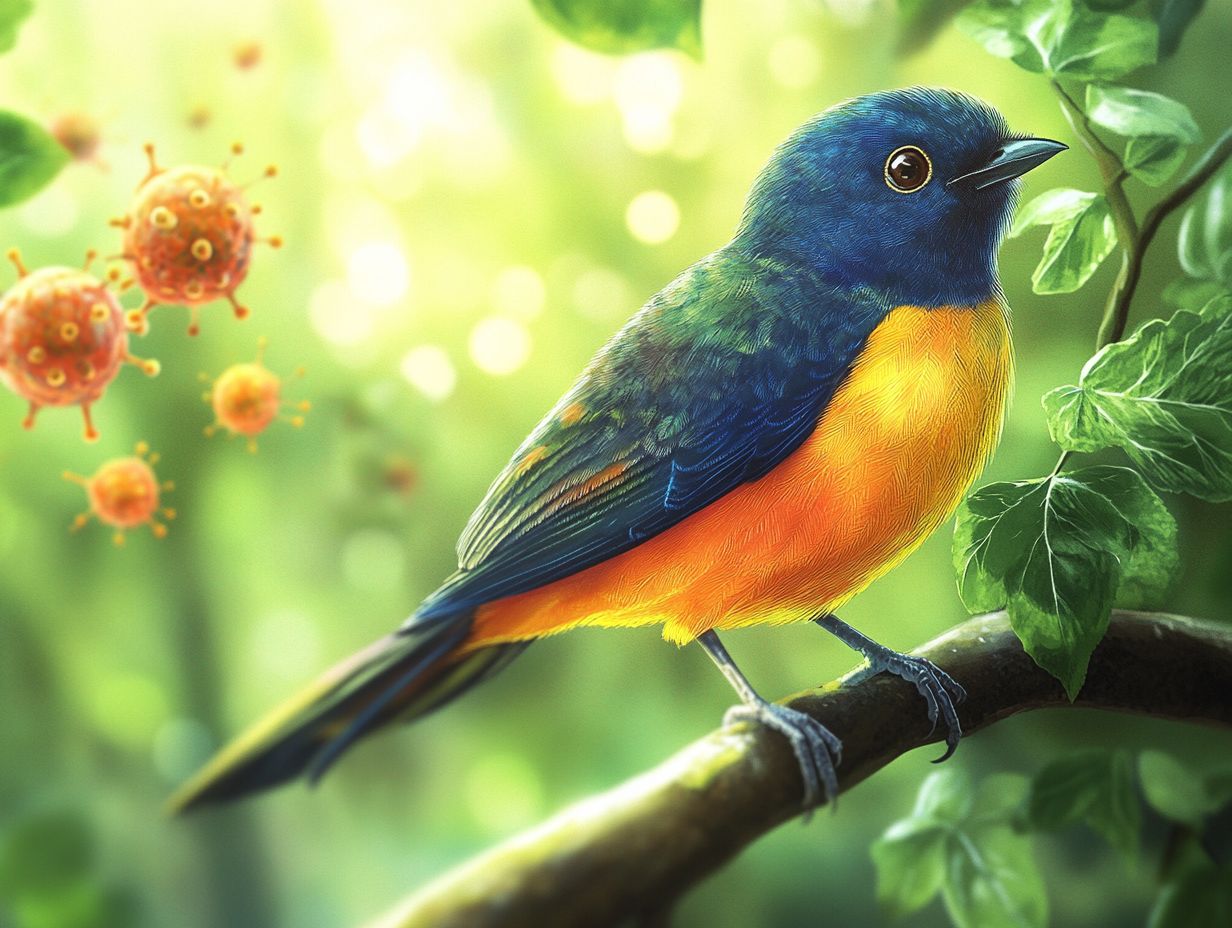
Several factors influence the avian immune system, including genetic elements, environmental conditions, and maternal immunity. Each of these can profoundly impact immune responses and the overall health of poultry.
Understanding these interconnected aspects is essential for anyone invested in avian health.
Environmental and Genetic Factors
Environmental and genetic factors play a pivotal role in shaping the avian immune system, influencing disease resistance and overall poultry health.
These factors include a variety of elements such as temperature fluctuations, housing conditions, and exposure to vaccines. These can profoundly affect the immune response in birds. For example, when poultry face extreme temperatures, their stress levels can rise, undermining their ability to effectively combat pathogens. The genetic traits in specific breeds can bolster or weaken their immune responses.
Recognizing these variables highlights the need for customized immune management strategies that boost poultry resilience against diseases.
Common Diseases in Birds
Common diseases that affect birds, such as Newcastle disease, Marek’s Disease, and avian influenza, present serious threats to poultry health. These threats show just how vital a strong avian immune system is.
Act now to protect your flock from these diseases!
How the Immune System Responds to Diseases
Your immune system mounts a complex defense against diseases using several mechanisms. This includes the activation of immune cells, the production of antibodies, and the secretion of cytokines (proteins that help regulate immune responses) to tackle those pesky pathogenic bacteria.
It all begins with specialized immune cells, like dendritic cells (immune cells that present pathogens to T-cells) and macrophages (cells that engulf and digest pathogens), recognizing pathogens. These cells are essential for capturing and presenting antigens (substances that trigger an immune response), setting the stage for an effective response. When they identify a threat, they spring into action, activating T cells. These T cells not only help eliminate infected cells but also assist B cells in producing critical antibodies.
Antibodies play a vital role in neutralizing pathogens, marking them for destruction, and preventing their spread throughout your body. The dynamic interplay among these immune components, along with the timely release of cytokines, forms a robust and adaptable defense mechanism. This intricate process ultimately protects your health, ensuring you remain resilient against various infectious agents.
Boosting Avian Immunity
Enhancing avian immunity is crucial for preserving the health of your poultry. Key strategies for achieving this include:
- Implementing a robust vaccination program
- Ensuring optimal nutrition
- Minimizing exposure to immunosuppressive agents
Prioritizing these measures will strengthen your flock’s immune defenses and enhance their overall health.
Ways to Strengthen the Immune System in Birds
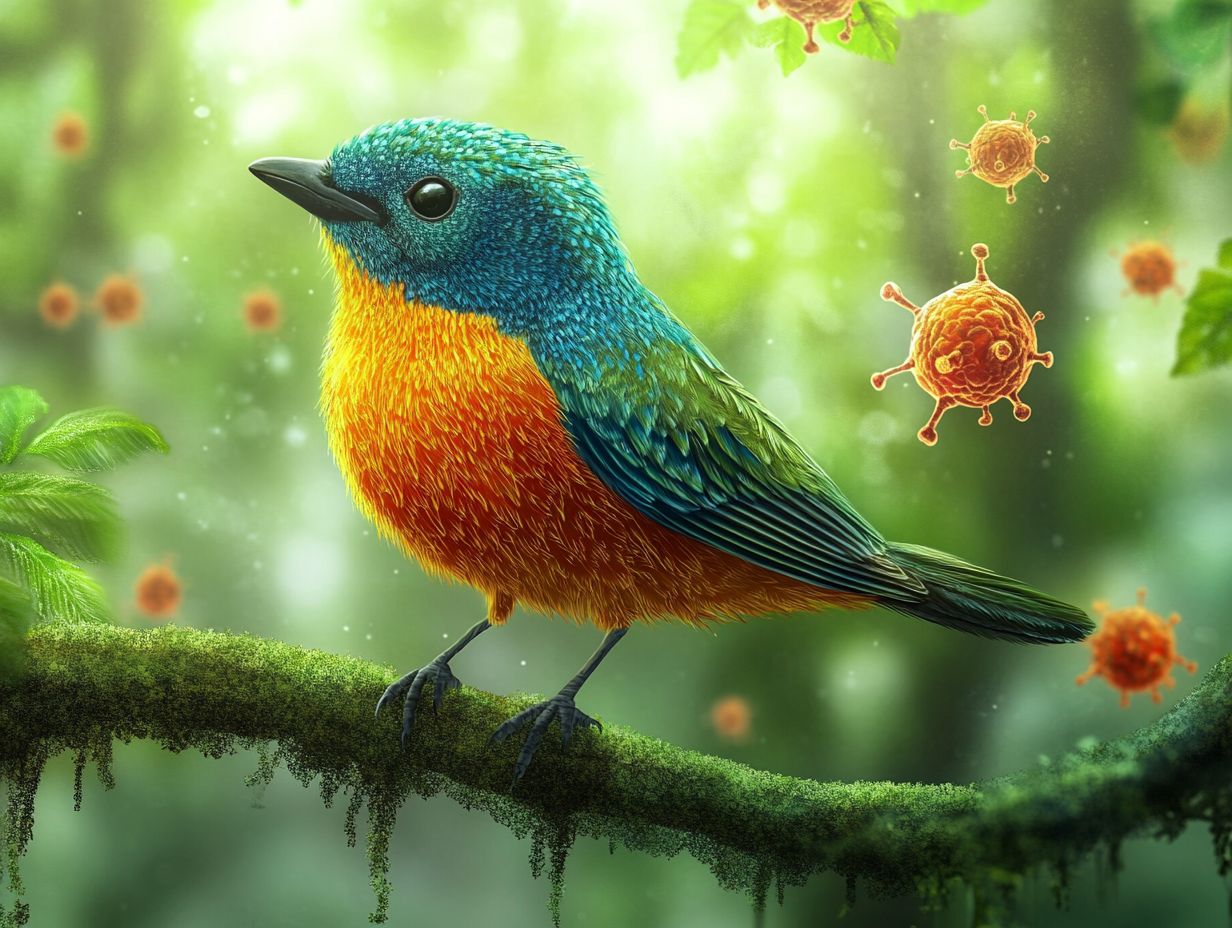
Strengthening your birds’ immune system requires effective vaccination, optimal nutrition, and proper environmental management.
By implementing a well-timed vaccination schedule, you can ensure that your birds receive the necessary immunizations at the right stages of their lives, safeguarding them against common diseases. Additionally, meeting specific nutrient requirements like proteins, vitamins, and minerals is vital for supporting their immune systems and enabling a robust response to pathogens.
Furthermore, employing sound environmental management practices, such as maintaining optimal temperature and humidity levels while minimizing stressors, can significantly enhance their immune resilience. Together, these strategies form a holistic approach that not only strengthens your birds’ defenses but also promotes their long-term health and productivity.
Managing Avian Health
Keep your birds thriving! Effectively managing avian health requires you to implement comprehensive ways to boost immune health that focus not only on disease prevention but also foster optimal poultry health.
Tips for Maintaining a Healthy Avian Immune System
To maintain a robust avian immune system, prioritize proper nutrition and stringent biosecurity measures. Consistent monitoring of flock health is essential to catch health issues before they become serious!
Alongside a balanced diet rich in vitamins, minerals, and high-quality protein, incorporating forage and natural supplements significantly bolsters the resilience of your birds. Strong biosecurity practices like controlling access to your farm and maintaining a rigorous sanitation routine greatly diminish the risk of disease entering your flock.
Regularly observe flock behavior and note changes in appetite. Managing waste effectively is crucial for identifying subtle signs of illness before they escalate. By adopting these strategies, you can cultivate a thriving environment that supports a strong immune response and reduces the chances of outbreaks.
Frequently Asked Questions
What is the Avian Immune System?
The Avian Immune System is a complex system of organs, cells, and molecules that work together to protect birds from disease-causing organisms and foreign substances.
How does the Avian Immune System differ from other animal immune systems?
The Avian Immune System differs from other animal immune systems in several ways, including the lack of antibodies and the presence of unique immune cells and organs, such as the bursa of Fabricius.
What is the role of the bursa of Fabricius in the Avian Immune System and immune system development?
The bursa of Fabricius is a specialized organ found in the chicken’s digestive system that produces B cells. These cells are crucial for antibody production and fighting off infections from pathogenic bacteria.
How do birds develop immunity?
Birds develop immunity through both innate and adaptive immune responses. The innate immune response is the first line of defense and includes physical barriers, such as the skin, and white blood cells. The adaptive immune response, which gets stronger over time, involves the production of specific antibodies and immune cells to fight off specific pathogens.
Why is understanding the Avian Immune System important?
Understanding the Avian Immune System is crucial for the health and well-being of birds. This knowledge allows us to develop effective vaccines and treatments for diseases that can affect them. It also helps us understand the interactions between birds and disease-causing organisms in the environment.
How can we support the Avian Immune System and enhance immune function support?
We can support the Avian Immune System by providing a clean and stress-free environment, a balanced and nutritious diet, and regular health monitoring to catch health issues early. Proper biosecurity measures are also vital to prevent the spread of diseases between birds.
Implement these tips to help your birds thrive and maintain a strong immune system!



